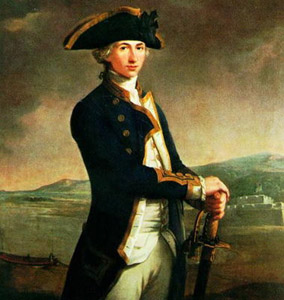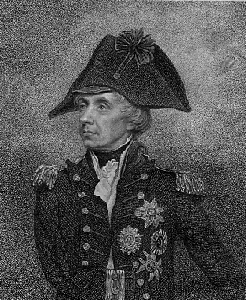Young Nelson's voyage to Sjuøyane
By Kristin Prestvold
What if? What if an important person had disappeared from history before the important events had taken place? What if the to-be Lord Nelson’s life had been ended on Sjuøyane on a summer’s evening in 1773? Would the Spanish/French fleet have won the Battle of Trafalgar in 1805? Would the world have been a different place if the English had lost? And who would have been awarded the honour, if anyone, of having his or her statue standing tall in Trafalgar Square in London?
 Horatio Nelson as a young man. Horatio Nelson as a young man.
 Lord Nelson. Lord Nelson.
A 14-year-old cadet by the name of Horatio Nelson came along on Pipps’ expedition to the North. An outgoing boy, full of initiative, Nelson had talked his way onto the ship Carcass. The expedition was not too fortunate with the weather, and the ice was difficult to get through – the pack ice lay like a wall in the north. There had been several boring days of complete standstill during the journey, some of these in the Sjuøyane islands. The ships were forced to stay put in the ice by the archipelago for several days, and young Nelson and a friend seized the chance to leave the ship unnoticed and go ashore on a nearby island in order to obtain a polar bear hide for Nelson’s father. The hunt that followed could easily have meant the end for Nelson. A large male bear attacked. The boy’s musket jammed and his ammunition had nearly run out. What finally saved Nelson was probably a crack in the ice between Nelson and his opponent, along with firing by the crew, who had noticed the runaway and the dangerous situation. He was thoroughly reprimanded when he re-boarded the ship, although the captain admired his courage.
The boy had courage. His bravery did not go unnoticed, although it may have bordered on foolhardiness. When all odds were against him, he is said to have shouted: “Never mind, do but let me get a blow at this devil with the butt-end of my musket, and we shall have him” (Conway 1906). Nelson showed people what he was made of at an early age. This was to serve him well later in life.
|